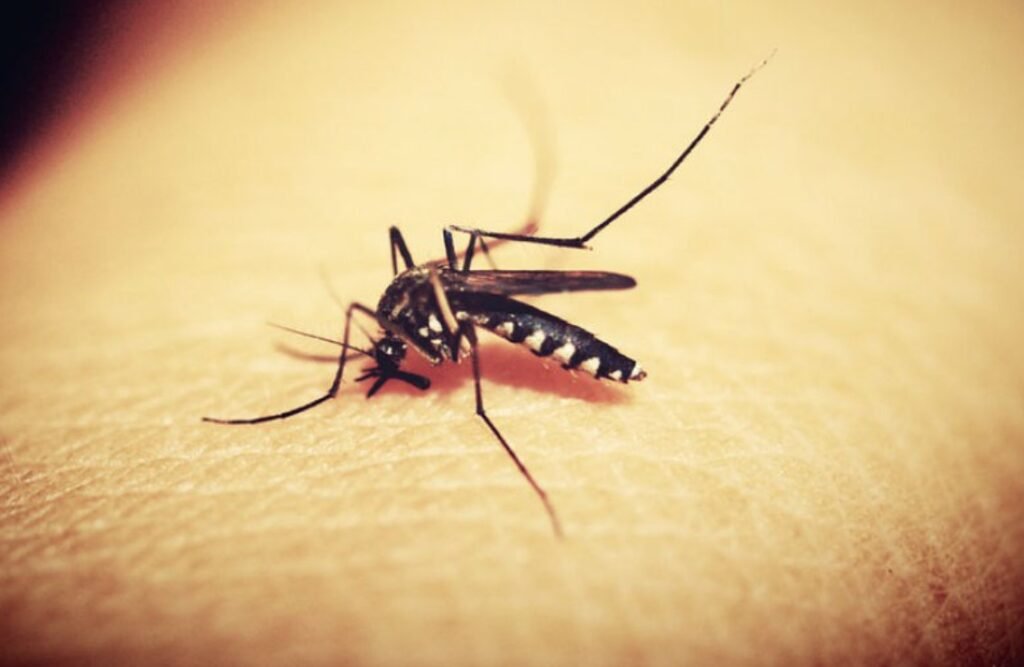Cameroon has become the first country in the world to launch a nationwide malaria vaccination programme, offering a new hope for millions of children at risk of the deadly disease. The programme, which started on Monday, January 22, 2024, aims to reach all infants under six months old with four doses of the RTS,S vaccine, the first malaria vaccine recommended by the World Health Organization (WHO).
Malaria is one of the leading causes of death and illness in Africa, especially among children under five years old. According to the WHO, more than 600,000 people died of malaria in Africa in 2023, accounting for more than 80% of the global malaria deaths. Cameroon alone reported more than 2.5 million malaria cases and over 4,000 deaths in 2023, making it one of the most affected countries in the continent.
The RTS,S vaccine, developed by the British drug-maker GSK, has been shown to reduce the risk of malaria by about 36% in children who received four doses. The vaccine works by stimulating the immune system to produce antibodies that target the malaria parasite in the liver, preventing it from infecting the red blood cells and causing symptoms.
The vaccine has been tested in large-scale clinical trials involving more than 15,000 children in seven African countries since 2009. The results showed that the vaccine was safe and effective, and could prevent millions of malaria cases and deaths if deployed widely.
The WHO approved the vaccine in October 2023, and recommended its use in areas with moderate to high malaria transmission. The vaccine is intended to complement, not replace, the existing malaria prevention and control measures, such as insecticide-treated bed nets, indoor residual spraying, and antimalarial drugs.

A historic step towards broader vaccination
Cameroon is the first country to implement the malaria vaccine programme at a national level, following the successful pilot campaigns in Ghana, Kenya, and Malawi, which started in 2019. The pilot phase involved more than two million children, and resulted in a 13% reduction in malaria deaths among the eligible age group, according to UNICEF.
The Cameroon programme aims to vaccinate more than 800,000 children every year, covering 42 districts across the country. The vaccine is offered free of charge, and is administered at the same time as other routine childhood vaccines, to make it easier for parents and health workers.
The launch of the programme was marked by a symbolic ceremony at a health facility in Soa, near the capital Yaounde, where six-month-old Noah Ngah and his twin sister Daniella became the first children to receive the vaccine in the country. Their mother, Helene Akono, said she decided to vaccinate her children to protect them from malaria, which she described as a “bad thing” that can easily kill a child.
The WHO, UNICEF, and the Gavi vaccine alliance, which are supporting the programme, hailed the launch as a “historic step” towards broader vaccination against one of the deadliest diseases for African children. They also praised the Cameroon government for its leadership and commitment to the programme, despite the challenges posed by the Covid-19 pandemic and the security situation in some regions.
A promising tool for a sustainable future
The Cameroon programme is expected to pave the way for other African countries to follow suit, and expand the coverage of the malaria vaccine in the continent. Burkina Faso, Liberia, Niger, and Sierra Leone are set to launch their own programmes later this year, with the aim of reaching more than 10 million children by 2025.
The malaria vaccine is seen as a promising tool for achieving the global goals of reducing malaria cases and deaths by at least 90% by 2030, and eliminating the disease in at least 35 countries by 2050. The vaccine could also contribute to the broader health and development agenda, by improving child survival, reducing poverty, and enhancing economic growth.
However, the vaccine is not a “silver bullet”, and its relatively low efficacy rate means that it needs to be used in combination with other interventions, and improved over time. The WHO and its partners are also working on developing new and better malaria vaccines, as well as addressing the challenges of vaccine supply, delivery, and financing.
The malaria vaccine programme in Cameroon is a historic achievement, but also a reminder of the unfinished work and the urgent need for more investment and innovation in the fight against malaria. As the WHO Director-General Dr Tedros Adhanom Ghebreyesus said, “We cannot afford to rest on our laurels. We must continue to expand access to life-saving malaria tools for everyone at risk, and to leave no one behind.”
